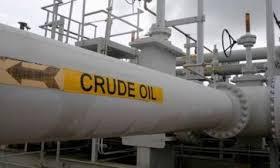India is rapidly increasing bookings for oil tankers from the Middle East as upcoming sanctions on major Russian producers threaten to disrupt its crude supply.
The rise in vessel charters signals stronger import flows in the coming weeks.
Shipbroker reports show that roughly a dozen tankers have been hired so far this week to load crude from Saudi Arabia, Kuwait, Iraq, and the United Arab Emirates. These vessels will deliver cargo across the Arabian Sea, marking a sharp jump from the same period last month, when only about four fixtures were recorded.
The bookings include Very Large Crude Carriers (VLCCs) and smaller Suezmax vessels, scheduled to load between late November and December. Reports indicate that Indian buyers are still seeking additional tankers on the same routes.
Oil traders are closely monitoring India’s term and spot purchases of non-Russian crude ahead of November 21, when sanctions on Rosneft PJSC and Lukoil PJSC are set to take effect. While some bookings may be arranged privately, the visible surge provides insight into refiners’ broader strategy in a market that often lacks transparency.
The increased demand for vessels is also impacting the freight market. Daily charter rates for supertankers shipping crude from the Middle East to Asia are now near a five-year high.
Five of India’s seven refiners, including Reliance Industries Ltd., have announced that they will cease taking Russian crude once the wind-down period ends this week. The remaining refiners may continue limited purchases from non-sanctioned suppliers.
India’s monthly tender purchases of crude have risen slightly, traders said.
However, the increase is still too small to offset the potential loss of more than one million barrels per day of Russian supply. Some refiners are believed to be quietly sourcing more barrels through long-term contracts with Middle Eastern sellers, while others are buying prompt cargoes of Kuwaiti crude. The latter has become available after an unplanned outage at Kuwait’s Al-Zour refinery, according to traders.
